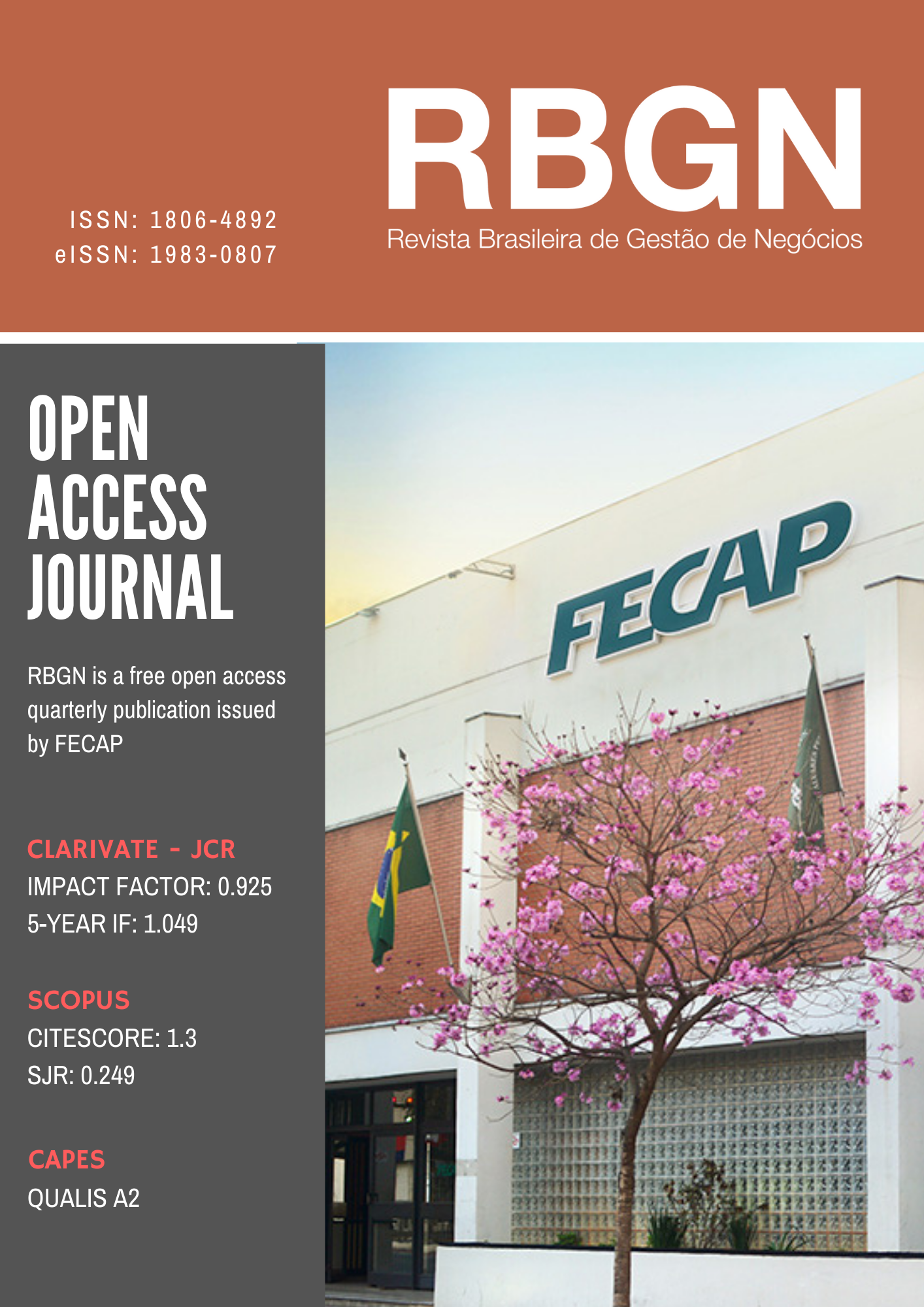Resumen
Purpose – To present and describe the Strategic Management of Organizational Resilience (SMOR) framework, as well as to analyze it based on the strategies used by four Brazilian organizations in this current time of intense vulnerability due to the worldwide pandemic triggered by COVID-19 at the beginning of 2020.
Theoretical framework – Organizational resilience and related management practices.
Design/methodology/approach –A literature review; bibliometrics relating to organizational resilience; the SMOR theoretical framework; an analysis of this framework within four Brazilian organizations, based on qualitative research and interviews, aiming to identify the strategic actions adopted by these organizations before and during COVID-19.
Findings – The organizations analyzed, which were different sizes and from different sectors, presented common points directly linked to the dimensions of SMOR: systematic analysis of scenarios; partnerships with stakeholders; systematic sharing of information; decision-making ability; financial management; rapid response and learning ability.
Practical & social implications – The research contributes to understanding how organizations can improve their culture of resilience and, therefore, deal more assertively with vulnerabilities and disasters of different natures. The COVID-19 pandemic has forced the world and organizations to reinvent themselves. In this context, the SMOR framework aims to provide a more detailed understanding of environmental risk / vulnerability management.
Originality/value – The SMOR framework helps organizations with different levels of complexity to understand their strengths and weaknesses, assess internal and external scenarios, and systematically analyze their processes, with the aim of strategically managing their respective resilience.
Keywords – Strategic management of organizational resilience, environmental variability and adversity, environmental uncertainty and risk, organizational adaptation and flexibility, COVID-19.
Una vez aprobada la publicación del artículo, el/los autor/es cede/n los derechos de copyright a la Revista Brasileira de Gestão de Negócios – RBGN.
Es OBLIGATORIO que los autores envíen a la RBGN el formulario de Cesión de Derechos de Autor debidamente cumplimentado y firmado según el modelo: [Derechos de autor]
Las condiciones de la Cesión de Derechos de Autor indican que la Revista Brasileira de Gestão de Negócios – RBGN goza a título gratuito y en carácter definitivo de los derechos de autor patrimoniales de los artículos publicados por ella. A pesar de la Cesión de los Derechos de Autor, la RBGN faculta a los autores al uso de estos derechos sin restricciones.
Los autores se responsabilizan de los textos publicados en la RBGN.
La RBGN adopta el modelo de licencia CC-BY Creative Commons Attribution 4.0, permitiendo la redistribución y reutilización de los artículos garantizando que la autoría esté debidamente acreditada.


